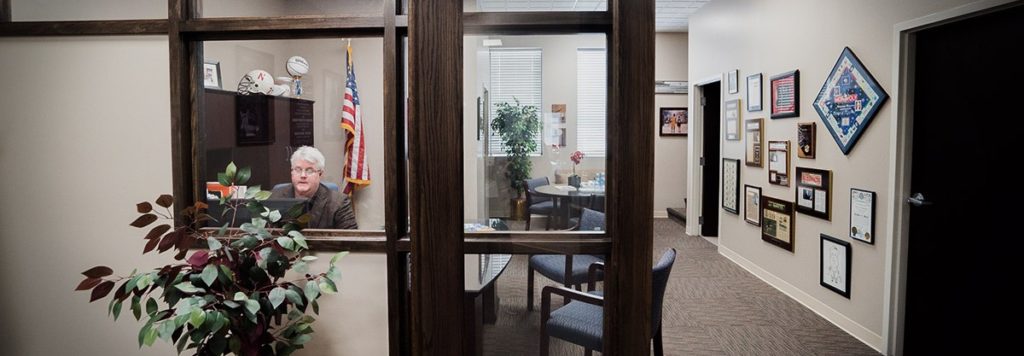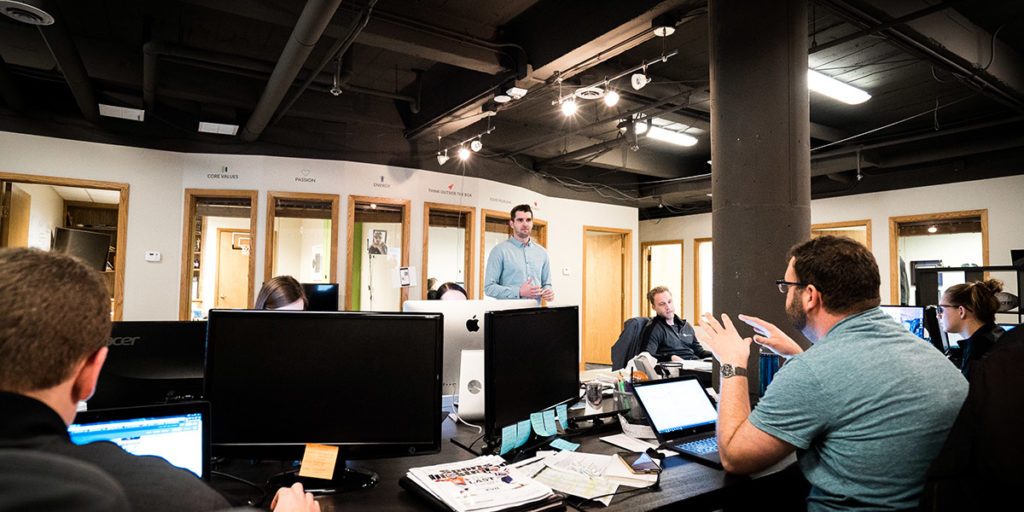
Steve Glenn gets giddy when he talks about work.
Almost a giggly, middle school girl kind of giddy. He listed off the agenda for his Friday afternoon, consisting of an assortment of phone and in-person meetings extending from 12:30 until after 6:00 that evening.
“Doesn’t that just sound like a fun day?!?!!” said Steve as he looked up from his calendar. He wasn’t being sarcastic or overly optimistic, he just loves his work.
No, Steve doesn’t give away puppies for a living, he’s a business owner and entrepreneur. More specifically he’s the owner of Executive Travel, Headwind Consumer Products, four True Value hardware stores, a Batteries+Bulbs franchise, a few shopping centers and a Subway in his hometown of Pawnee City, Neb.
It’s a lot, but it doesn’t stress Steve out because it didn’t happen overnight.
Steve started his first company, Executive Travel, after reading a book titled, ‘How to start a travel agency.’ He started out in a small office where his desk doubled as the top of a 4-drawer filing cabinet.
Steve sold travel door-to-door, slowly building his business and coming up with innovative ways to make travel more accessible. He even gave away computers to his customers as a way to excite them about travel and technology. People thought he was crazy, but Steve saw how intrigued people were with his out-of-the-box methods, and his business boomed.
“I’m disruptive,” Steve said. “Doesn’t that sound like a bad thing?”
Being disruptive has fueled Steve’s daily excitement to try to new things, but it doesn’t mean he hasn’t had his fair share of failure.
Steve said he’s started more than 40 different companies, and a handful of them have been duds, but that’s fine by him. He sees failure as part of the creative process and he’s taught himself how to deal with failure head-on.
He learned how to fail from his experiences as a Husker football player, businessman and political candidate. Each season showed Steve that there was always someone faster, stronger, smarter or more popular than he was. It didn’t feel good, but Steve realized that he could either be defeated by those realities or learn from them, and he chose the latter.
Steve directly attributes his success to his ability to fail, pick himself back up and try again. He’s not afraid to fail, and he challenges others to do the same.
But what stood out the most about Steve’s story is that he knows who he is and who he’s not.
Steve is not a Type-A boss and he doesn’t try to be. He’s more of a visionary, and hates the idea of a plan with no flexibility.
He’s a big picture kind of guy who knows how to dream big, take risks and push the envelope. He’s not very good at focusing his own thoughts, but he’s an extremely thoughtful and inspiring mentor.
Steve doesn’t claim to have all the answers, he doesn’t boast about his success or any of his skills. Instead, his story is about knowing what he loves, doing what he loves and staying aligned with his passions.
